Quintessential Karachiite: From helping farmers in the dell to weeding out the seeds
Zulfiqar Momin employs grafting, modern technology to cultivate seedless fruit, improve agriculture
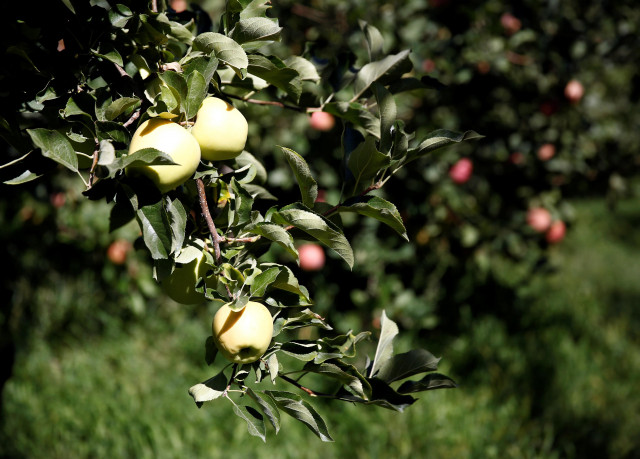
A Reuters file photo of an apple orchard.
Zulfiqar Momin, primarily an expert in the field of logistics and supply chain, truly came to appreciate the value of this treasure trove of nature, particularly of its red, juicy berries, in 2013. They were of high value but low cost, mainly due to problems in the supply chain, as identified by Momin.
His endeavours to get these cherries from Gilgit recognised as high-cost fruits in the international market marked Momin's journey towards cultivating seedless varieties of fruits and those resistant to climate change.
He devised and brought in place a modern mechanism for cherry cultivation, its picking and packaging. Following this, he used his savings to establish a packaging house in the valley and began exporting cherries to the Middle East, helping not only the fruit to gain prominence in the international market but also expand the local industry.
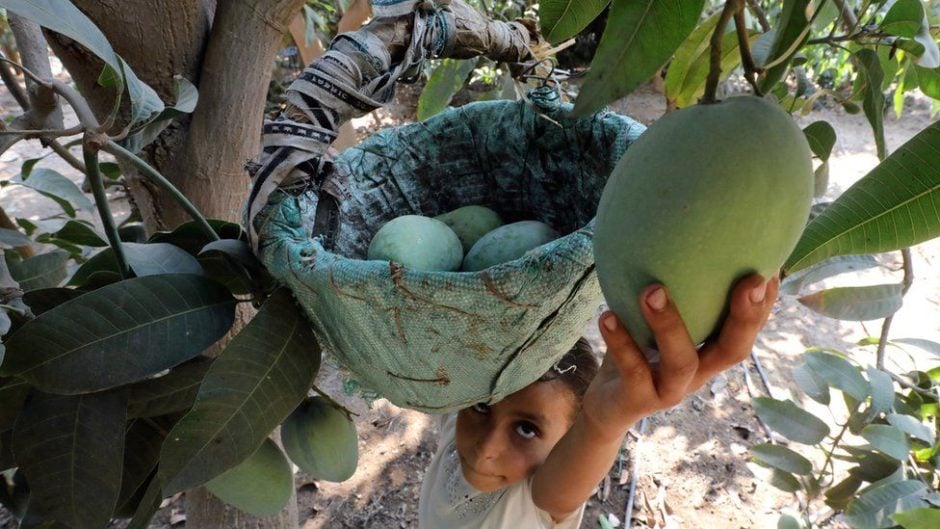 A girl picks a mango in this AFP file photo.
A girl picks a mango in this AFP file photo.Mangoes after cherries
The next fruit that interested Momin was the mango. He saw an opportunity to tap into the export potential of the sweet-tasting fruit and began transporting it to different regions, including Britain, the United States of America (USA) and the Middle East in 2014. But that was not it.
Momin innovated, collaborated with USA- based courier companies and airlines and began taking online orders from Pakistan to other countries, which significantly boosted the export across the USA.
Preparing the ground
As Momin graduated out of a government college and landed himself a job at a logistics company in 1989, working on anything related to fruits was a faraway thought for him.
He had established his own business just five years after he got a job but it was to take him another decade to engage in the cultivation and export of fruits.
Later, following his successful stint of exporting cherries and mangoes, which actually sparked his interest in the agriculture sector, Momin temporarily moved to California where he took some short courses pertinent to the field.
Upon his return to Pakistan, he realised the many problems being faced by the agriculturists in the Pakistan. Their progress was hampered by various diseases plaguing the yield, use of old and redundant farming methods and, most of all, the emerging effects of climate change.
Fruitful solutions
In a bid to overcome these problems, Momin grafted better varieties of various fruits, procured from outside of Pakistan. He carried out extensive research and cultivated a variety of fruits that was resistant to climate change. Not just that, but the yield per acre of the fruit was also far higher than that of the variety cultivated in Pakistan otherwise.
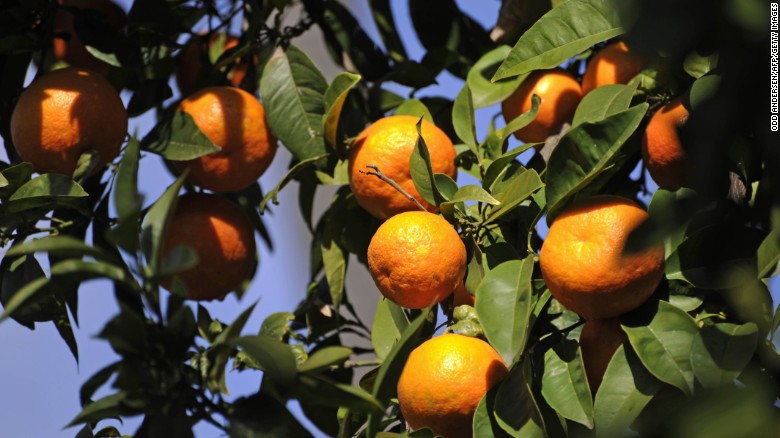 PHOTO: AFP
PHOTO: AFPCitrus but seedless
However, Momin was particularly concerned about the problems faced by Pakistani agriculturists cultivating citrus fruits, as well as those involved in their trade and export.
In 2016, he experimented with grafting a variety of grapefruit on a piece of land he owned in the suburbs of Karachi. Though the country's climate wasn't exactly favourable for the survival of the seedless variety of fruit he attempted to reap, the endeavour proved to be fruitful and he has named the type of grapefruit 'Qalandar', after his love for Sindh and Sufis.
Momin now intends to plant up to 16,000 trees of the seedless grapefruit over the next two years. He expects that the trees will begin bearing fruit in about three years and the production will multiply in about five years.
According to Momin, each tree is to have a lifespan of 20 years to 25 years and will able to produce approximately 150 kilogrammes of fruit each year. He plans to plants 400 such trees per acre of land, which will collectively produce 60,000kg of fruit every year.
The estimated cost of this seedless variety of grapefruit is suggested to be Rs200 per kg, as a result of which farmers will be able to earn up to Rs12 million from trees covering an acre of land every year.
Moreover, these trees are able to bear the weight of grapefruit clusters for up to five months, giving liberty to the farmers to pick them at their own will and according to their demand.
Besides grapefruits, Momin has experimented with cultivating seedless varieties of pomegranates, lemons, guavas and figs. So far, he has been successful in cultivating seedless figs, though he is hopeful of achieving good results with other fruits too.
Once cultivated, he plans to name his seedless pomegranates 'Sindhu', and his guavas 'Rani'.
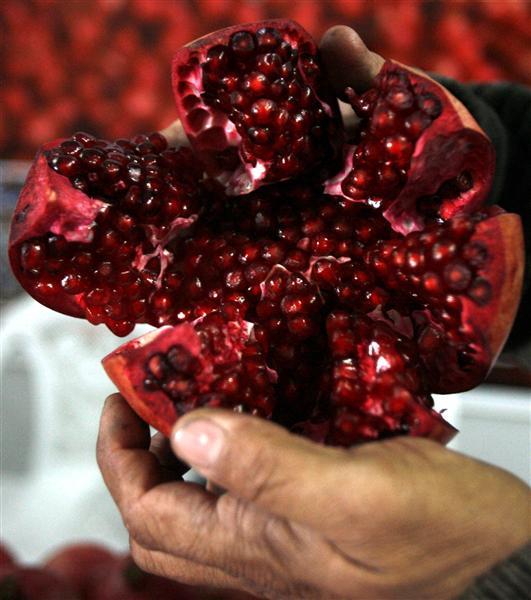 An Afghan seller displays produce for sale during the World Pomegranate Fair in Kabul. PHOTO: REUTERS
An Afghan seller displays produce for sale during the World Pomegranate Fair in Kabul. PHOTO: REUTERSSowing the seeds for future harvest
Momin is now working on a project, to be implemented over the coming five years, for cultivating good quality citrus fruit on barren land. The endeavour is directed towards facilitating farmers in terms of production, costs and maintaining the quality of the yield.
Acknowledging that the agriculture sector in Sindh, Balochistan and other humid regions of the country has particularly suffered under the effects of climate change, Momin aims to employ modern technology to cultivate seedless citrus fruit in these regions under the project. Valued more than those having seeds in the international market, these fruits will help generate more income for the agriculturists.
The Sindh agriculture department has shown interest in the project and Momin foresees this as a step towards revolutionising the agriculture sector in the country.


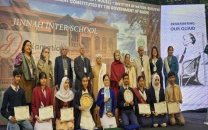
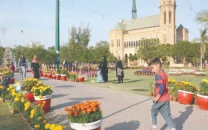














COMMENTS
Comments are moderated and generally will be posted if they are on-topic and not abusive.
For more information, please see our Comments FAQ